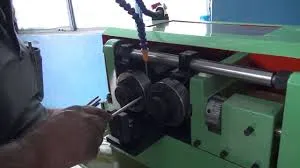
-
 Afrikaans
Afrikaans -
 Albanian
Albanian -
 Amharic
Amharic -
 Arabic
Arabic -
 Armenian
Armenian -
 Azerbaijani
Azerbaijani -
 Basque
Basque -
 Belarusian
Belarusian -
 Bengali
Bengali -
 Bosnian
Bosnian -
 Bulgarian
Bulgarian -
 Catalan
Catalan -
 Cebuano
Cebuano -
 Corsican
Corsican -
 Croatian
Croatian -
 Czech
Czech -
 Danish
Danish -
 Dutch
Dutch -
 English
English -
 Esperanto
Esperanto -
 Estonian
Estonian -
 Finnish
Finnish -
 French
French -
 Frisian
Frisian -
 Galician
Galician -
 Georgian
Georgian -
 German
German -
 Greek
Greek -
 Gujarati
Gujarati -
 Haitian Creole
Haitian Creole -
 hausa
hausa -
 hawaiian
hawaiian -
 Hebrew
Hebrew -
 Hindi
Hindi -
 Miao
Miao -
 Hungarian
Hungarian -
 Icelandic
Icelandic -
 igbo
igbo -
 Indonesian
Indonesian -
 irish
irish -
 Italian
Italian -
 Japanese
Japanese -
 Javanese
Javanese -
 Kannada
Kannada -
 kazakh
kazakh -
 Khmer
Khmer -
 Rwandese
Rwandese -
 Korean
Korean -
 Kurdish
Kurdish -
 Kyrgyz
Kyrgyz -
 Lao
Lao -
 Latin
Latin -
 Latvian
Latvian -
 Lithuanian
Lithuanian -
 Luxembourgish
Luxembourgish -
 Macedonian
Macedonian -
 Malgashi
Malgashi -
 Malay
Malay -
 Malayalam
Malayalam -
 Maltese
Maltese -
 Maori
Maori -
 Marathi
Marathi -
 Mongolian
Mongolian -
 Myanmar
Myanmar -
 Nepali
Nepali -
 Norwegian
Norwegian -
 Norwegian
Norwegian -
 Occitan
Occitan -
 Pashto
Pashto -
 Persian
Persian -
 Polish
Polish -
 Portuguese
Portuguese -
 Punjabi
Punjabi -
 Romanian
Romanian -
 Russian
Russian -
 Samoan
Samoan -
 Scottish Gaelic
Scottish Gaelic -
 Serbian
Serbian -
 Sesotho
Sesotho -
 Shona
Shona -
 Sindhi
Sindhi -
 Sinhala
Sinhala -
 Slovak
Slovak -
 Slovenian
Slovenian -
 Somali
Somali -
 Spanish
Spanish -
 Sundanese
Sundanese -
 Swahili
Swahili -
 Swedish
Swedish -
 Tagalog
Tagalog -
 Tajik
Tajik -
 Tamil
Tamil -
 Tatar
Tatar -
 Telugu
Telugu -
 Thai
Thai -
 Turkish
Turkish -
 Turkmen
Turkmen -
 Ukrainian
Ukrainian -
 Urdu
Urdu -
 Uighur
Uighur -
 Uzbek
Uzbek -
 Vietnamese
Vietnamese -
 Welsh
Welsh -
 Bantu
Bantu -
 Yiddish
Yiddish -
 Yoruba
Yoruba -
 Zulu
Zulu
Top Recommended Thread Rolling Machines for Optimal Performance and Efficiency
The Best Types of Thread Rolling Machines
Thread rolling machines play a crucial role in the manufacturing sector, particularly in the production of fasteners, bolts, and other threaded components. By providing a method of shaping metal through deformation rather than cutting, these machines enhance the strength and integrity of the threads produced. When selecting the best type of thread rolling machine for your needs, it’s important to consider various factors such as the type of product, production volume, and materials used. Here, we explore some of the most effective types of thread rolling machines available in the market today.
1. Flat Die Thread Rolling Machines
Flat die thread rolling machines are designed specifically for rolling external threads. They use two flat dies that press against the workpiece to form threads. This type of machine is ideal for producing large batches of uniform threads, making it suitable for mass production. The operational efficiency and cost-effectiveness of flat die thread rolling machines make them a popular choice for manufacturers who require high-quality threads in significant quantities.
2. Rotary Thread Rolling Machines
Rotary thread rolling machines utilize rotary dies to produce threads on round or cylindrical workpieces. These machines are highly versatile and can handle a variety of materials, including steel, aluminum, and plastics. Rotating dies allow for smooth and consistent thread formation, which is critical when high precision is necessary. Rotary thread rolling machines are particularly advantageous when producing longer threaded components, as their design facilitates efficient feeding and processing.
3. Planetary Thread Rolling Machines
best types of thread rolling machine

Planetary thread rolling machines are known for their ability to produce intricate thread profiles while maintaining tight tolerances. These machines employ a unique planetary action, where multiple dies work in unison around a central workpiece. This design reduces the stress on the material and minimizes deformation, resulting in high-quality output. Planetary machines are particularly effective for producing smaller components that require precision and consistency.
4. Multi-Station Thread Rolling Machines
For manufacturers looking to maximize production efficiency, multi-station thread rolling machines offer a compelling solution. These machines feature multiple sets of rollers and can operate on multiple workpieces simultaneously. This design significantly increases output and reduces cycle time, making it an excellent choice for high-volume production runs. The flexibility of multi-station machines allows them to adapt to various sizes and thread types, making them suitable for diverse manufacturing needs.
5. Hydraulic Thread Rolling Machines
Hydraulic thread rolling machines utilize hydraulic power to apply pressure to the dies, providing greater force and control over the rolling process. This type of machine is particularly advantageous when dealing with harder materials that require increased force for effective thread formation. Hydraulic machines can be used in both small and large scale operations, providing versatility across different production environments.
Conclusion
Choosing the right thread rolling machine can significantly impact your manufacturing efficiency and product quality. Whether you opt for flat die, rotary, planetary, multi-station, or hydraulic machines, understanding the unique benefits of each type will enable you to make an informed decision tailored to your specific production needs. Careful consideration of your manufacturing process and product requirements will ultimately guide you to the best thread rolling machine for your operations. By investing in the right equipment, you enhance not only productivity but also the reliability and performance of your threaded components.
